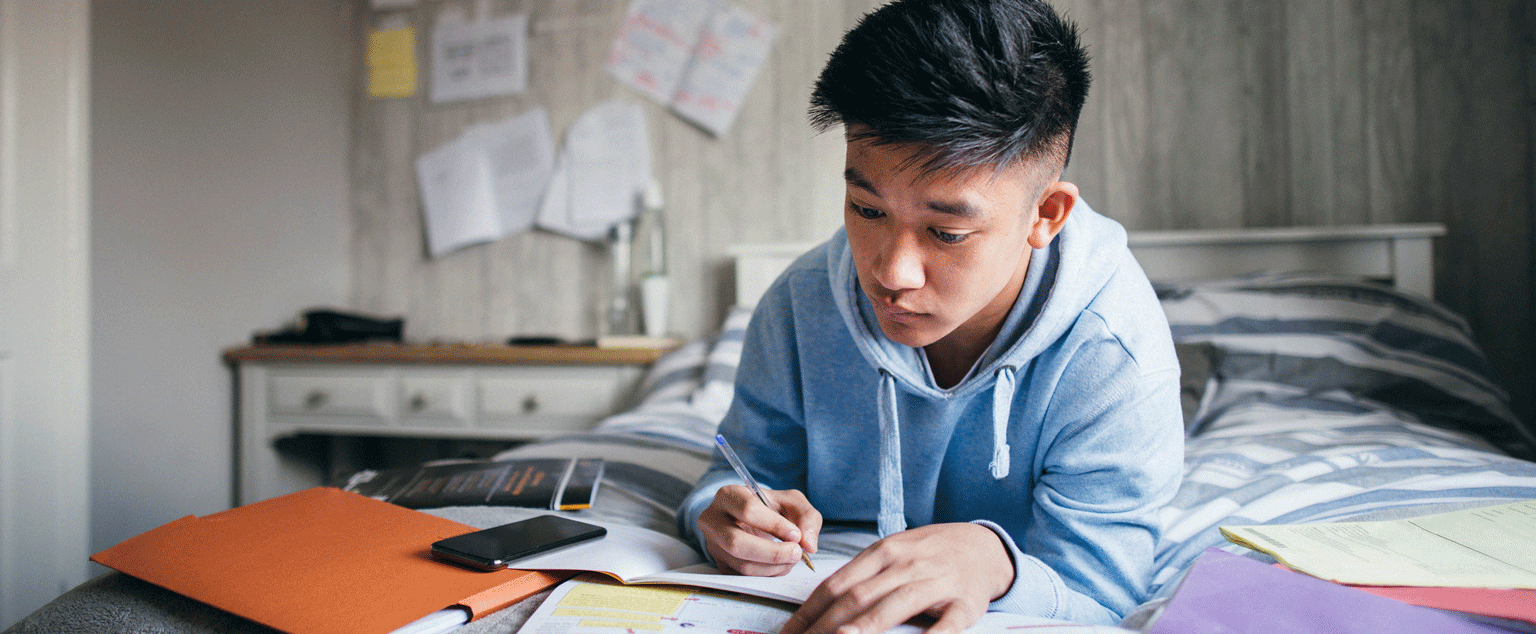Managing Teen Anxiety

Discover seven Tips to Help Teens Manage Stress and Anxiety.
As humans, we all experience stress and anxiety from time to time, which is normal and can be helpful in the right doses. Our bodies even have physiological coping mechanisms to respond to and deal with stress. However, prolonged periods of intense anxiety can have a negative effect on one's mental health and overall wellbeing. Teenagers, who are still figuring out who they are, how to navigate life and how to respond to its stressors tend to be the most susceptible to heightened emotional states - including stress and anxiety.
Following the effects of Covid-19 and the lockdown, dealing with an influx of hormones and changing bodies, and dealing with heightened social and environmental concerns, it's not surprising that many teens are experiencing varying degrees of anxiety.
Here are 7 tips to help your teen manage...
Acknowledge their Feelings
Much as we may want to make everything right in the world for our children, there are some things we just can't fix or change. There will be challenges that your teen will have to navigate as an individual. It can be tempting to want to play down their worries in an attempt to make them feel better, but it's important to recognise and acknowledge that being a teenager can be really difficult at times and that their feelings are valid. Active listening can go a long way in comforting your teen and allowing them to feel heard and understood holds great value.
Anxiety is Normal
It's worth reminding your teen that anxiety is also a normal part of emotional responses and not necessarily symptoms of a mental health issue or anxiety disorder. As above, the simple act of acknowledging that anxiety is a normal and expected response to stressful situations may be helpful to them.
Use Anxiety to Spur Practical Action
If your teen is worried about something in particular, this can translate into an opportunity to give them the momentum they need to take positive actions towards addressing their stressor. For example, if they are struggling with social anxiety, you can encourage them to take some necessary steps to becoming more confident in social situations such as inviting a friend or two over to watch a movie, or attending an event they would normally decline. You can discuss what those steps might be and begin to slowly move the dial.
Sleep
When it comes to combatting anxiety, the importance of sleep is paramount. You and your teen probably already know this, but it's worth stressing and ensuring that your teen actually does get enough shut-eye. Passive and endless scrolling and engagement with online media tend to be a popular vice for anybody struggling with anxiety. As such, try to ensure your teen doesn't end up on their phone, tablet or other media devices till the early hours.
Change Focus
A change of focus can be very helpful when it comes to managing stress and/or anxiety. This is less of a deflection tactic and more of a shift of perspective. After talking with your teen and practising some active listening, you've probably got a good idea of what is weighing them down. This is where you can potentially help them to shift their focus onto something more positive or figure out helpful workarounds and practise the art of reframing.
Prioritize Fun and Wellbeing
If your teen is experiencing long bouts of anxiety, there are some things you can do help mitigate their stress. You can help your teen by gently guiding them to follow a routine that incorporates one or a few wellbeing practices such as journalling, meditation or physical meditation like yoga or daily walks. Another thing you can do is encourage them to follow their interests and make time for the things that bring them joy. For example, if schoolwork is the source of their anxiety, make sure that they're still making time for sports, gaming, making TikToks or whatever it is that they're into. Taking their mind off the situation for short bursts will help reduce their anxiety levels.
Modelling your Behaviour
Kids of all ages feed off our emotions and reactions, and teens are no exception. If we are obsessively fretting and anxious, the chances are they will model that behaviour and are more likely to be anxious themselves. Try to follow the steps above too if you think it will help bring down anxiety levels for the whole family.
If you feel as though your child's anxiety or stress levels are beyond what you're able to help them with, or if they express to you that they're really struggling, you can always consult your family GP or a mental health practitioner.
If you would like more support and one-to-one advice contact our Speak to an Expert service.





